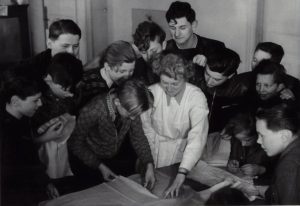The Relationship Builder’s Guide: Strengthening Bonds through Communication
Effective communication is fundamental to successful relationships, both personal and professional. It enables mutual understanding, expression of needs and desires, and fosters trust and connection. Poor communication can lead to misunderstandings, conflicts, and resentment, while clear, open, and honest communication promotes understanding and empathy, establishing a solid foundation for healthy relationships.
In personal relationships, effective communication is vital for expressing emotions, resolving conflicts, and making joint decisions. In professional settings, it facilitates collaboration, teamwork, and productivity by enabling idea sharing, feedback, and collective goal achievement. Both contexts benefit from effective communication through increased trust and stronger connections.
Effective communication encompasses clear articulation, active listening, understanding others’ perspectives, and empathy. It also involves recognizing nonverbal cues and maintaining openness and honesty in interactions. Mastering these communication skills can lead to more meaningful relationships across all aspects of life.
Key Takeaways
- Effective communication is crucial for building strong relationships
- Active listening is essential for successful communication
- Empathy helps in understanding and connecting with others
- Nonverbal communication plays a significant role in sending and receiving signals
- Open and honest communication is key to building trust in relationships
Active Listening: A Key Component of Successful Communication
The Benefits of Active Listening
By actively listening, we show respect and empathy towards the speaker, which in turn fosters a sense of trust and connection. When we practice active listening, we demonstrate that we value the speaker’s thoughts and feelings. This can lead to more open and honest communication, as the speaker feels heard and understood.
Avoiding Misunderstandings and Building Stronger Relationships
Active listening also helps to avoid misunderstandings and misinterpretations, as we are fully engaged in the conversation and able to clarify any points of confusion. By being present and attentive during conversations, we can build stronger relationships based on mutual respect and understanding.
Developing the Skill of Active Listening
In addition to being an important component of effective communication, active listening is also a skill that can be developed and improved over time. By practicing mindfulness and being fully present in our interactions with others, we can become better listeners and communicators. This can lead to more meaningful and fulfilling relationships in all areas of our lives.
The Art of Empathy: Understanding and Connecting with Others

Empathy is the ability to understand and share the feelings of another person. It is a crucial skill in building strong relationships, as it allows us to connect with others on a deeper level and to show compassion and understanding towards their experiences. When we practice empathy, we are able to see the world from the perspective of others, which fosters a sense of connection and mutual respect.
Empathy involves not only understanding the emotions of others but also expressing care and concern for their well-being. It requires us to be attentive to the needs and feelings of others, to listen with an open heart, and to offer support when needed. By practicing empathy in our relationships, we can create a safe and nurturing environment where people feel valued and understood.
In addition to fostering strong relationships, empathy also has a positive impact on our own well-being. When we practice empathy, we become more attuned to the emotions of others and develop a greater sense of compassion. This can lead to increased happiness and fulfillment in our own lives, as we are able to connect with others in a meaningful way.
By cultivating empathy in our relationships, we can create a more compassionate and understanding world for ourselves and those around us.
Nonverbal Communication: Sending and Receiving Signals
Nonverbal communication plays a significant role in how we express ourselves and understand others. It includes body language, facial expressions, gestures, eye contact, posture, and tone of voice. These nonverbal cues can convey a wealth of information about a person’s thoughts, feelings, and intentions.
By being aware of nonverbal signals, we can better understand the true meaning behind the words spoken and build stronger connections with others. Body language is a powerful form of nonverbal communication that can convey emotions such as happiness, sadness, anger, or fear. For example, crossed arms may indicate defensiveness or resistance, while open gestures may signal openness and receptivity.
Facial expressions also play a crucial role in nonverbal communication, as they can reveal a person’s true emotions even when their words may say otherwise. By paying attention to these nonverbal cues, we can gain a deeper understanding of others’ feelings and respond with empathy and understanding. In addition to sending nonverbal signals, it is equally important to be attentive to the nonverbal cues of others.
By being mindful of body language, facial expressions, and tone of voice, we can better understand the emotions and intentions behind their words. This can lead to more effective communication and stronger connections with others. By honing our awareness of nonverbal communication, we can become more skilled at understanding and connecting with those around us.
Building Trust through Open and Honest Communication
Trust is a fundamental element of any successful relationship, whether it’s with a partner, friend, family member, or colleague. Open and honest communication is essential for building trust, as it creates a sense of transparency and reliability in our interactions with others. When we communicate openly and honestly, we demonstrate integrity and authenticity, which fosters a sense of trustworthiness in our relationships.
Open communication involves sharing our thoughts, feelings, and experiences with others in a transparent manner. It requires us to be vulnerable and authentic in our interactions, expressing ourselves truthfully without fear of judgment or rejection. Honest communication involves being truthful in our words and actions, avoiding deceit or manipulation in our interactions with others.
When we communicate openly and honestly, we create an environment where trust can flourish. Building trust through open and honest communication also involves being receptive to feedback from others. By actively listening to their thoughts and concerns, we show that we value their input and are willing to address any issues that may arise.
This can lead to stronger connections with others based on mutual respect and understanding. By fostering open and honest communication in our relationships, we can build trust and create a solid foundation for lasting connections.
Conflict Resolution: Navigating Difficult Conversations

Approaching Conflicts with an Open Mind
When conflicts arise, it’s essential to approach them with a willingness to listen to the concerns of others. Active listening helps us understand the root causes of the conflict and find common ground for resolution. Empathy allows us to see the situation from the perspective of others and respond with compassion and understanding.
Open Dialogue and Assertive Communication
Engaging in open dialogue with those involved in the conflict enables us to work towards finding mutually beneficial solutions. Conflict resolution also involves being assertive in expressing our own needs and concerns while respecting the perspectives of others. This requires open and honest communication about our feelings without resorting to blame or criticism.
Collaborative Conflict Resolution
By adopting a collaborative mindset rather than an adversarial one, we can find solutions that strengthen our relationships rather than causing further division. This approach enables us to navigate conflicts in a way that fosters growth, understanding, and deeper connections with others.
Cultivating Positive Communication Habits for Stronger Relationships
Cultivating positive communication habits is essential for building stronger relationships in all areas of our lives. This involves practicing active listening, empathy, open dialogue, honesty, and transparency in our interactions with others. By developing these habits, we can create an environment where trust can flourish and connections can deepen.
Active listening involves being fully present in our interactions with others, paying attention to their words as well as their nonverbal cues. It requires us to be attentive to their thoughts and feelings without interrupting or judging them prematurely. By practicing active listening regularly, we can become better communicators who foster understanding and connection with those around us.
Empathy is another important habit to cultivate for stronger relationships. It involves seeing the world from the perspective of others and responding with care and compassion towards their experiences. By practicing empathy in our interactions with others, we can create a supportive environment where people feel valued and understood.
Open dialogue is crucial for fostering transparency and trust in our relationships. It involves sharing our thoughts and feelings openly with others while being receptive to their perspectives as well. By engaging in open dialogue regularly, we can create an environment where honesty and authenticity are valued.
Honesty is essential for building trust in our relationships. It involves being truthful in our words and actions while avoiding deceit or manipulation. By practicing honesty consistently, we can create an environment where trust can flourish.
Transparency involves being open about our thoughts, feelings, and experiences with others. It requires us to be vulnerable and authentic in our interactions while respecting the privacy of others as well. By cultivating these positive communication habits in our relationships, we can build stronger connections based on mutual respect, understanding, trustworthiness, authenticity, compassion, honesty, transparency.
FAQs
What is the importance of communication in building relationships?
Communication is essential in building and strengthening relationships as it allows individuals to express their thoughts, feelings, and needs. Effective communication fosters understanding, trust, and connection between people.
How can active listening contribute to relationship building?
Active listening is a key component of effective communication and can contribute to relationship building by showing respect, empathy, and understanding towards the other person. It helps in creating a supportive and open environment for meaningful conversations.
What are some strategies for improving communication in relationships?
Some strategies for improving communication in relationships include practicing active listening, expressing oneself clearly and assertively, being open to feedback, and being mindful of nonverbal cues.
How does empathy play a role in strengthening bonds through communication?
Empathy plays a crucial role in strengthening bonds through communication by allowing individuals to understand and relate to the emotions and experiences of others. It fosters a sense of connection and support in relationships.
What are the potential challenges in communication that can impact relationships?
Potential challenges in communication that can impact relationships include misunderstandings, lack of clarity, differences in communication styles, and emotional barriers. These challenges can hinder effective communication and strain relationships.













Post Comment